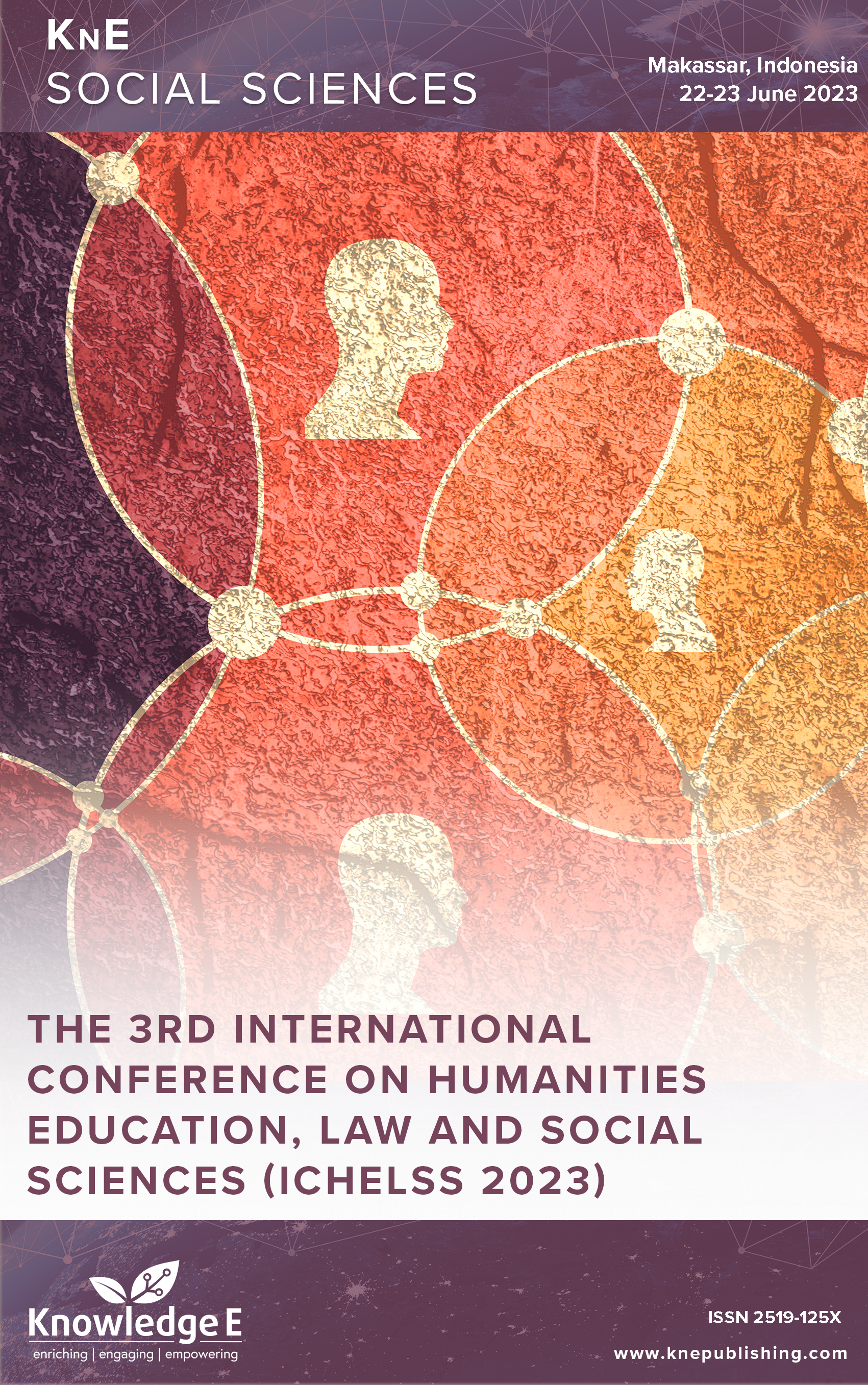Building National Character Through Social Studies Based on Society 4.0 Values Post-Pandemic COVID-19
DOI:
https://doi.org/10.18502/kss.v9i2.14924Abstract
This paper’s fundamental problem is building national character through social studies based on Society 4.0 in the post-COVID-19 pandemic. This is because the learning process during the COVID-19 pandemic takes place online using a platform to support learning. The use of the platform is a problem that has not been touched on, namely, the formation of student character. This study uses a qualitative approach to produce an overview of social studies learning methods based on the national character to improve teacher professional competence. A total of 35 social studies teachers were taken as samples. The results obtained in this study, namely the solution in the form of developing learning methods that tend to be monotonous, which so far have been carried out, must be combined with methods that provide more space for students to develop their potential. In this connection, national character is interpreted as a way of thinking and behaving that shows the differences of everyone to live and work together for a better life for society and the nation. The 2013 curriculum on social studies subjects was developed as an integrative social studies subject, not as separate disciplines. Social studies subjects are, of course, applicative-oriented education, as the development of inquiry abilities, learning abilities, and character education such as curiosity, creativity, honesty, and the development of a caring and responsible attitude towards the surrounding environment and social relations.
Keywords: building national character, social studies learning, community values 4.0
References
Satya PA. COVID-19 dan Potensi Konflik Sosial. Jurnal Ilmiah Hubungan Internasional; 2020. pp. 39–45.
Iswantiningtyas V, Wulansari W. Pentingnya Penilaian Pendidikan Karakter Anak Usia Dini. Proceedings of the ICECRS. 2018;1(3):197–204. DOI: https://doi.org/10.21070/picecrs.v1i3.1396
Yang RH. Educational Technology A Primer for the 21st Century. 1st ed. Singapore: Springer Nature Singapore Pte Ltd.; 2019.
Suwarma Al Muchtar. Pendidikan Ilmu Pengetahuan Sosial. 1st ed. Bandung: Gelar Pustaka Mandiri; 2019.
Ornstein AC, Hunkins FP. Curriculum: Foundation, principles and issues, 7th edition. 2016.
Sapriya. Pendidikan IPS. I. Bandung: Rosda karya; 2009.
Creswell J. John Creswell Research Design Qual and Quant Approaches. 3rd ed. United Kingdom: Sage; 2014.
Lickona T. Eleven principles of effective character education. J Moral Educ. 1996;25(1):93–100. DOI: https://doi.org/10.1080/0305724960250110
Kemendikbud. Silabus Kesetaraan 2019.
Peters MA. Love and social distancing in the time of Covid-19: the philosophy and literature of pandemics. Educ Philos Theory. 2020;0:1–5. DOI: https://doi.org/10.1080/00131857.2020.1750091
Pusat Penilaian Pendidikan Kementerian Pendidikan dan Kebudayaan. Model Penilaian Karakter 2019:1–59.
Walsh F. The New Normal, Diversity and Complexity in 21st Century Families. Normal Family Processes Growing Diversity and Complexity 2012:3–27. https://doi.org/10.13140/2.1.3740.5765.
Williamson B, Payton S. Curriculum and teaching innovation : Transforming classroom practice and personalisation a Futurelab handbook. Bristol: Futurlab; 2009. p. 67. DOI: https://doi.org/10.12968/sece.2009.2.1444
Adamson F, Darling-Hammond L. Policy Pathways for Twenty-First Century Skills. 2015. https://doi.org/10.1007/978-94-017-9395-7_15. DOI: https://doi.org/10.1007/978-94-017-9395-7_15
Amran A, Perkasa M, Jasin I, Satriawan M, Irwansyah M. Model Pembelajaran Berbasis Nilai Pendidikan Karakter Untuk Generasi Indonesia Abad 21. Lentera Pendidikan : Jurnal Ilmu Tarbiyah Dan Keguruan. 2019;22(2):233. DOI: https://doi.org/10.24252/lp.2019v22n2i5

